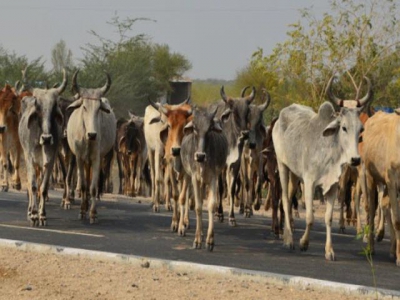Dwarf cattle breeds make cool cows

Research will open up new ways of assessing heat stress tolerance and breeding for sustainable livestock production.
Dwarf cattle breeds may be better adapted to high temperatures, according to research published by an international team that includes researchers from The University of Western Australia (UWA).
The study showed, for the first time, that dwarf breeds of cattle use different heat tolerance mechanisms than standard cattle breeds, making them better adapted to hotter climates, according to the announcement from UWA.
Dr. Muhammed Elayadeth-Meethal from Kerala Veterinary and Animal Sciences University in India, who led the study, came to UWA in 2013 and trained in thermal physiology measurements under professor Shane Maloney from UWA’s School of Human Sciences and Institute of Agriculture.
Elayadeth-Meethal said the standard cattle breeds acclimatize to the warm environment through physiological, biochemical and molecular changes while the dwarf breeds have adapted through changes in their genes.
“Standard size cattle breeds can acclimatize in the short term to higher temperatures but reach their tolerance limit under prevailing tropical conditions, while the dwarf breeds are genetically adapted to the warmer climate,” Elayadeth-Meethal explained.
Maloney added that the study highlights the importance of these locally adapted breeds as a reservoir of genetic variation, which can be used as candidate breeds to develop climate-ready cattle.
“There is an increasing trend of importing international breeds rather than relying on domestic breeds, which may be smaller in size but are better suited to a tropical climate, for example,” Maloney said. “Tolerant breeds are preferred as it requires minimum diet and management modifications and, thus, causes less welfare and environmental issues compared to high-yielding commercial breeds.”
The research will open up new ways of assessing heat stress tolerance and breeding for sustainable livestock production especially under changing climate, UWA said.
The paper, "Size Does Matter: Parallel Evolution of Adaptive Thermal Tolerance & Body Size Facilitates Adaptation to Climate Change in Domestic Cattle," was published in the journal Ecology & Evolution. The research formed part of Elayadeth-Meethal’s doctoral studies and was supported by Crawford Funding Australia and Rothamsted International Fellowship.
The collaborating institutions -- Kerala Veterinary & Animal Sciences University, University of Bristol, UWA and Rothamsted Research -- are all members of the Global Farm Platform initiative that attracts researchers from different communities and disciplines seeking to develop sustainable ruminant production globally
Có thể bạn quan tâm
Phần mềm

Phối trộn thức ăn chăn nuôi

Pha dung dịch thủy canh

Định mức cho tôm ăn

Phối trộn phân bón NPK

Xác định tỷ lệ tôm sống

Chuyển đổi đơn vị phân bón

Xác định công suất sục khí

Chuyển đổi đơn vị tôm

Tính diện tích nhà kính

Tính thể tích ao hồ



 Swapping high dietary protein levels for fermentable carbs…
Swapping high dietary protein levels for fermentable carbs…  New method developed for monitoring pasture nutrients
New method developed for monitoring pasture nutrients